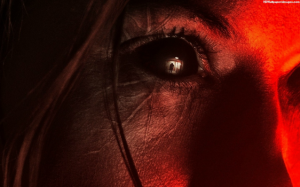THE LAZARUS EFFECT: 2 STARS. “crams a lot into its scant running time.”
 “The Lazarus Effect,” a new low-budget thriller starring Olivia Wilde and Mark Duplass, is about giving people a second chance. A new serum formulated by a group of young, good-looking geniuses prolongs the time after death that doctors can continue to safely try and revive patients. But, as always, when you trifle with the natural order of things there are unexpected consequences. “If we are going to be asking big questions we have to be ready for the answers,” says Zoe (Wilde), who, as it turns out, wasn’t as prepared for the answers as she thought.
“The Lazarus Effect,” a new low-budget thriller starring Olivia Wilde and Mark Duplass, is about giving people a second chance. A new serum formulated by a group of young, good-looking geniuses prolongs the time after death that doctors can continue to safely try and revive patients. But, as always, when you trifle with the natural order of things there are unexpected consequences. “If we are going to be asking big questions we have to be ready for the answers,” says Zoe (Wilde), who, as it turns out, wasn’t as prepared for the answers as she thought.
Liberally borrowing from “Frankenstein’s” playing God cautionary tale, “The Lazarus Effect” sees researchers Zoe, Frank (Duplass) and Niko (Donald Glover) create a formula that defies death, bringing deceased animals back to life. (“What if we ripped him from doggie heaven?” wonders Zoe, weighing the ethics of reviving the dearly departed.) The mutts come back a little more ornery than they were the first time they were alive, but a trial run or two are successful enough that big pharma swoops in and steals their idea. In a last ditch attempt to prove their ownership over the serum they secretly do one final test but when the experiment goes awry they are forced to do an unscheduled human run with horrifying results. For such smart people they sure do a lot of stupid things.
“The Lazarus Effect” is the latest shocker from Blumhouse Productions, the folks responsible for the low-fi thrills of “Paranormal Activity,” “Sinister” and “Oculus.” They value atmosphere over actual horror, using shadows and jump scares to get pulses racing. Sometimes it’s very effective—“Insidious” leaves viewers with an icky unease that’s hard to shake—but just as often they fall flat.
“The Lazarus Effect,” clocking in at an economical 75 minutes, crams a lot into its scant running time, but fails to fully develop any of its ideas. It’s alive with Frankenstein references, but where old Frankenstein lumbered around, mostly meaning well when he wasn’t throwing little girls into lakes and being menaced by angry villagers, the recently deceased here flits around maniacally. They (THERE WILL BE NO SPOILERS HERE) have high brain activity, can read minds and move things telepathically, which you’d think would be pretty cool, but their new talents only appear to make them angry. Combine that with an undeveloped religion vs. science subplot that finds our undead reliving the most traumatic moment of their lives over and over again and you’re left with bits and pieces of a story that are never stitched together to form a whole.
“The Lazarus Effect” has some corny lines—“Did I just die?”—a few unintentionally funny moments—the human comes back to life covered in a white sheet, like a kid’s ghost costume—and atmosphere to burn. What it doesn’t have is the sense of fun necessary to pull off the cheesy moments or the scares to sell it as a full-blown horror story.
